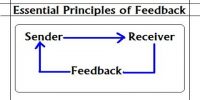Difference between Strategy and Policy
Strategy means the skill of managing any affair. It means the skill of managing any affair. It is a method or plan chosen to bring about the desired future, such as the achievement of a goal, objective, or solution to a problem. Policy a path or standard of an act adopted or planned by an organization or individual. It is a set of ideas or a plan for action followed by a business, a government, a political party, or a group of people:
There are some differences between a strategy and a policy. These are as follows:
Strategy
- Definition: Strategy means the skill of managing any affair. It is used to describe a pathway along which the organization moves towards its goals or objectives.
- Scope: The scope of strategy is comparatively limited than that of policy.
- Necessity: Strategy is not necessary for all kinds of operations.
- Nature: Strategy is related to tactics and civil administration.
- Dependency: Strategy is always dependent upon the policy.
- Influence: Particular situation or areas are influenced by the strategy.
- Continuity: Strategy is not as successive as policy.
- Maintenance of secrecy: Strategy should maintain the secrecy strictly
Policy
- Definition: A policy is a general plan of action that guides members of the enterprise in the conduct of its operation.
- Scope: On the other hand, the scope of Policy is comparatively wider than that of strategy.
- Necessity: Policy is essential for all operations.
- Nature: Policy is universal and related to general administration.
- Dependency: On the other hand, Policy never depends on strategy.
- Influence: All functions and functional areas are influenced by the policy.
- Continuity: Policy is a continuous process.
- Maintenance of secrecy: Secrecy is not necessary in case of policy. Rather, “the more disclosing, the better”.
So, these are the various differences between a strategy and policy.














